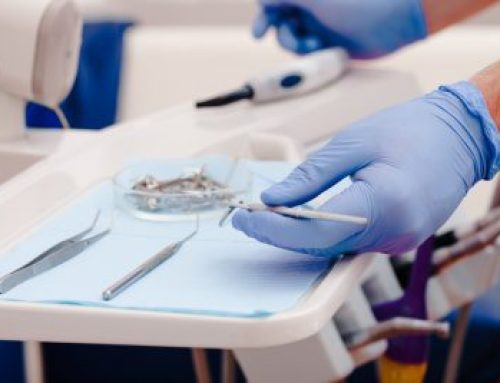Tooth decay (also referred to as dental caries or cavities) is a severe oral health concern affecting millions worldwide. Unfortunately, most instances go undetected until symptoms such as pain or visible damage become evident; understanding its causes, consequences, and prevention strategies is paramount to maintaining optimal oral health.
What Is Tooth Decay?
Tooth decay is a progressive condition characterized by the destruction of tooth structure. This process begins when bacteria in your mouth turn sugars from food into acids that slowly wear away at your enamel layer. If left untreated, cavities of various sizes and severity will eventually form; advanced stages may result in infection, abscess formation, and tooth loss.
Root Causes of Tooth Decay
Tooth decay arises from an intricate interplay of factors:
- Oral Bacteria: Streptococcus mutans and Lactobacillus bacteria are among the most troublesome in our mouths, feeding off sugars and carbohydrates from the food we eat and turning them into acids that cause enamel erosion, leading to tooth decay and weakening its protective barrier, creating an environment conducive to cavities forming.
- Poor Oral Hygiene: By forgoing proper oral hygiene practices such as brushing and flossing, we create the ideal environment for harmful bacteria to thrive. Plaque is a sticky film of bacteria that forms on tooth surfaces and traps acids against them to intensify their erosive effects and accelerate decay processes. Regular brushing and flossing disrupt this buildup by clearing away food particles and bacteria before they can do significant harm to oral health.
- Diet: The foods and beverages we consume are critical in developing tooth decay. Sugary treats, acidic drinks, and starchy snacks provide food for acid-producing bacteria to feed on and break down enamel over time. Frequent daily snacking compounds this problem by creating an acidic environment in our mouths.
- Dry Mouth (Xerostomia): Saliva provides the mouth with a natural defense against acids, food particles, and tooth decay. When saliva production drops due to dry mouth (xerostomia), these protective mechanisms become compromised, leaving teeth more exposed to acid attacks and bacteria growth, significantly increasing their risk.
- Genes: Genes play a large part in our susceptibility to tooth decay. Variations in our DNA can change the composition and structure of enamel, making it more or less resistant to acid erosion. Furthermore, genetic factors may alter saliva production and composition, altering its ability to neutralize acids and remineralize teeth.
- Socioeconomic Factors: Accessing quality dental care is crucial to managing and preventing tooth decay. Unfortunately, socioeconomic factors like income level and insurance coverage can create barriers that prevent regular visits for preventive treatments. Cultural practices and beliefs may influence oral hygiene habits and diet choices, leading to disparate decay rates between populations.
Risk Factors and Prevention Strategies
Numerous factors increase an individual’s susceptibility to dental decay:
- Poor oral hygiene and an unhealthy, sugary, and acidic diet are significant contributors.
- Smoking and tobacco use, in combination with certain medical conditions, may contribute to dry mouth.
- Access to dental services may be limited for individuals without access.
Effective Prevention Strategies
Maintain excellent oral hygiene
An effective oral hygiene routine is key to protecting against tooth decay. Brushing twice a day should be part of any dental hygiene plan. Fluoride toothpaste helps strengthen tooth enamel against acid attacks and strengthens its resistance against acid attacks, so use one when brushing. Ensure all tooth surfaces—outer, inner, and chewing surfaces—are covered!
Flossing is also essential, reaching those hard-to-reach spaces between teeth and along the gumline that your toothbrush cannot. These areas are susceptible to plaque and food debris accumulation, which could eventually lead to cavities; daily flossing helps dislodge these particles for healthier gums and ensure good dental health.
Consider adding an antimicrobial mouthwash to your routine. Mouthwash can help decrease harmful bacteria in your mouth, reducing your risk of tooth decay and gum disease – however, it should never replace brushing and flossing!
Adopt a Balanced Diet
Your diet has an immense effect on your oral health. Overeating sugary and acidic foods creates an unfriendly environment for your teeth, feeding acid-producing bacteria that cause cavities while directly eroding the enamel surface. Avoid sugary drinks like soda, energy drinks, and sweetened juices while being mindful of acidic foods such as citrus fruits or vinaigrette dressings containing acids.
Focus on eating a diet rich in fruits, vegetables, whole grains, and lean proteins such as dairy products. These provide essential vitamins for overall health and strengthen teeth and gums. Dairy products also contain calcium necessary for strong teeth and bones.
Schedule Regular Checkups and Cleanings
Even with diligent home care, professional dental visits are crucial for optimal oral health. Professional cleanings remove plaque and tartar (hardened plaque), which cannot be effectively removed through brushing and flossing alone, thus helping prevent gum disease and tooth decay.
Dental exams allow your dentist to detect early symptoms of decay, gum disease, and other oral health concerns that require intervention. Early detection often results in more straightforward and less invasive treatment plans; additionally, they offer personalized advice about proper hygiene and diet practices tailored specifically for you.
Remember: Prevention is key. By adopting and making these practices part of your everyday routine, you’ll make significant strides toward having a beautiful smile that lasts a lifetime.
Treatment Options
HPS Advanced Dental Care offers various treatment options if tooth decay is discovered:
Fillings Are Used to Repair Damage
Fillings are the primary treatment option for cavities. A dentist removes decayed parts of a tooth before filling any resulting cavities with restorative material such as tooth-colored composite resin, porcelain, or dental amalgam (a silvery-colored mixture). Fillings restore the structure and function of affected teeth while helping protect them from further decay by sealing off affected areas.
Dental Crowns Are Protective Shields
A crown may be necessary if a tooth has been severely compromised by decay or fracture. A crown is a custom-made cap that covers all visible portions of a tooth. Common materials used include porcelain, ceramic, or metal alloy and serve to strengthen, protect, and aesthetic restore it – while simultaneously protecting from further damage by protecting and reinforcing weaker areas within it while restoring natural shape and function to weaker parts of its structure.
Root Canal Therapy: Saving Natural Teeth
Root canal therapy becomes necessary when tooth decay reaches the inner pulp chamber containing nerves and blood vessels, leading to an infection that causes severe discomfort or leads to abscesses if left untreated. A root canal requires the removal of infected pulp from canals before cleaning and disinfecting before sealing them off to prevent reinfection, usually followed by crown placement for added strength and protection of weakened or weakened tooth structure.
Dental Implants or Bridges for Missing Teeth Replacement
Dental implants or bridges offer practical solutions to restore smile and oral function when tooth decay has progressed to tooth loss. Implants are artificial tooth roots of titanium posts surgically implanted into your jawbone to serve as the foundation for replacement teeth such as single crowns, bridges, or dentures. Bridges serve the same purpose by anchoring to adjacent natural or implanted teeth as anchor points for new replacements to be attached to.
Restoring Your Smile Step by Step
If you are experiencing tooth pain, sensitivity, or visible signs of decay, don’t wait to seek professional dental care. Our knowledgeable HPS Advanced Dental Care team can assess your oral health needs, recommend suitable treatment options, and guide your journey toward a healthier, more confident smile.
Take Charge of Your Oral Health Now
HPS Advanced Dental Care is committed to helping you attain a beautiful and vibrant smile. Book a comprehensive dental exam now so we can assess your oral health and develop customized prevention and treatment plans.
Before tooth decay becomes an issue, contact HPS Advanced Dental Care at (248) 652-0024 to take the first steps toward a healthier smile.



